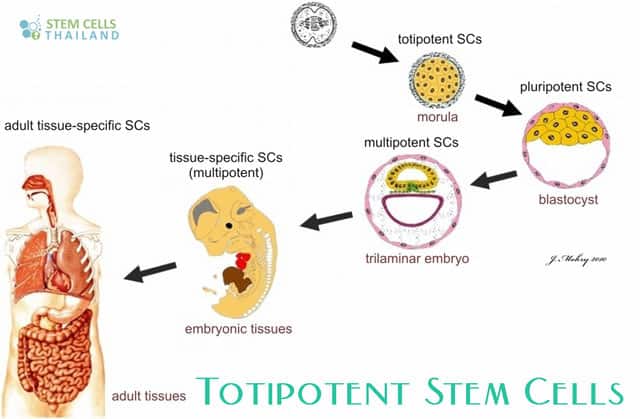
Totipotent stem cells are very unique among all other variants of stem cells, because totipotent stem cells possess the highest possible ability to construct an entire organism from a single cell.
Totipotent stem cells are cells that have the capability to develop into any type of cell in an organism, including the cells of the extraembryonic membranes (such as the placenta). This means they have the potential to create an entire organism. The term “totipotent” derives from the Latin words “totus” (whole) and “potens” (powerful), which together suggest “total potential.”
In summary, totipotent stem cells are a fascinating area of study in developmental biology and regenerative medicine, but their use comes with ethical considerations due to their potential to become an entire organism.
They have the flexibility to transform into any type of special cells, even the likelihood of forming a new kind of organism.
If you've seen people take ice baths or cold showers and wondered if they're onto… Read More
Immunomodulation stands at the forefront of biomedical research, steering the immune system's ability to fight… Read More
Stem cell research leads the charge in medical innovation, heralding revolutionary advances in regenerative medicine.… Read More
The blood-brain barrier (BBB) is a crucial shield for the brain, regulating the entry of… Read More
While peptide bonds are fundamental to protein structure, their direct relationship with stem cells lies… Read More
When discussing cutting-edge cancer treatments, NK cell therapy stands out due to its unique approach… Read More